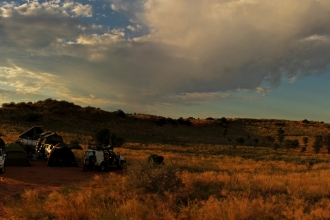
Scope to increase Kgalagadi tourism fees
South African conservation authorities could raise the daily park attendance fees for the Kgalagadi Transfrontier Park (KTP) by just over double, without a significant loss of visitors in response to…

South African conservation authorities could raise the daily park attendance fees for the Kgalagadi Transfrontier Park (KTP) by just over double, without a significant loss of visitors in response to…
Restoration of degraded and depleted mangrove habitats and planting of mangroves over coastal mudflats is happening at many places, but there are few studies that evaluate the flow of ecosystem services from these regenerated ecosystems. The state of Gujarat in Western India has planted thousands of hectares of mangroves over the coastal mudflats and, today, the state’s mangrove cover is nearly double that in the 1930s. However, these mangroves have limiting features: for example, these are mostly single-species, Avicenna marina, and are sparse, and lack freshwater supply.
The Three Year Action Agenda, a NITI Aayog document, is based on extensive discussions with and inputs from the central ministries and State governments. The Governing Council of the NITI Aayog, consisting of the Prime Minister as its Chairperson and several Union Ministers and State Chief Ministers as Members, extensively deliberated on the document in its draft form at its meeting on 23rd April 2017.
Institutions play a significant role in stabilising large-scale cooperation
in common pool resource management. Without restrictions to govern human
behaviour, most natural resources are vulnerable to overexploitation. This study
used a sample size of 336 households and community-level data from 30 communities
around Gonarezhou National Park in Zimbabwe, to analyse the relationship
between institutions and biodiversity outcomes in community-based wildlife
conservation. Our results suggest a much stronger effect of institutions on biodiversity
In sub-Saharan Africa, urban recreational ecosystem services are browning and disappearing despite the global recognition of their importance. We study the availability, preference, and determinants of visitations to urban recreational ecosystem services in Dar es Salaam. The results show that, amongst the functioning and publicly owned recreational ecosystem services, there are botanical gardens and other open green spaces with greenery (e.g., trees, grass, or gardens) and sometimes with basic facilities such as benches.
Los programas de transferencias condicionadas (PTC) para promover objetivos de salud y educación, así como los pagos por servicios ecosistémicos (PSE) en el caso de los objetivos ambientales, son dos instrumentos importantes de política pública. Ambos buscan alinear los intereses de la sociedad como un todo con los intereses de los individuos, familias y propietarios de la tierra.
This study sought to identify agroforestry systems with coffee that simultaneously generate financial profits, provide goods for family consumption, and store significant amounts of carbon in aboveground biomass. We studied 27 coffee plantations in Nicaragua, grouped in four typologies defined a priori: C1, full-sun coffee; C2, coffee, bananas and service trees; C3, coffee, bananas, service and timber trees; C4, coffee, bananas, service, timber and fruit trees.